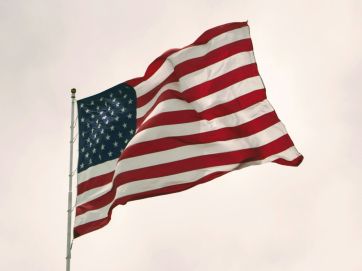CounterCurrent: Week of 7/3
Fire up the grills and pull out the lawn chairs—it’s time to celebrate Independence Day NAS-style!
America has a storied history full of highs and lows, and at the National Association of Scholars, we believe that our nation’s history is worth learning and celebrating. In a time in which so many people aim to denigrate and destroy our national heritage, we aspire to preserve the gift passed down to us and to prepare the next generation to do the same. While we should, of course, acknowledge our nation’s failures and shortcomings, we should continue to celebrate the best of America—the people, places, and ideas that have made our nation the land of the free and the home of the brave.
So fly the American flag proudly and set off those fireworks, regardless of what the blue check marks say on Twitter. I’d contribute some pasta salad and watermelon to the occasion if I could—but since that option is off the table, I’ll do the next best thing and share three ways that NAS is celebrating this summer.
1. Educating for Citizenship Case Studies
NAS has long worked to ensure that all students at American colleges and universities receive an education that prepares them to be good citizens, regardless of their field of study. Most recently, NAS launched a series of reports titled Educating for Citizenship that examines the state of civics education in public universities in three different states. The first two reports, examining civics education in Arizona and Utah, were published last month, and the final report, studying civics education in Texas, will be released this Thursday. We will be discussing all three case studies in our upcoming “Educating for Citizenship” webinar.
Unfortunately, civics education in all three states leaves much to be desired. Even when state governments attempt to mandate university-level civics education, university administrators often manipulate the requirements to further their diversity, equity, and inclusion agenda. American citizens deserve better than to have their taxpayer dollars go toward advancing radical anti-American ideologies—which is why each of the reports concludes with a series of recommended reforms that citizens can use to advocate for effective civics mandates.
2. American Birthright Social Studies Standards
Although university-level civics education is important, America’s children shouldn’t have to attend a college or university to learn to fulfill their duties as citizens. That’s why, in 2021, NAS convened the Civics Alliance, a coalition of education reformers, policymakers, and citizens dedicated to promoting quality civics education for all Americans. Last week, the Civics Alliance released American Birthright, a set of model K-12 social studies standards that state education departments can use to ensure the students in their state learn about their birthright of liberty.
NAS Research Director and Civics Alliance Executive Director David Randall’s words in the introduction of American Birthright offer a reminder of the purpose of civics education, one that is especially fitting for Independence Day:
Our children should learn who we Americans are—and then they should be taught about the nations, the faiths, and the history of the world. They should also learn America’s common language of liberty, patriotism, and national memory. We must instruct our children so they may become worthy of their ancestors by becoming full members of the American republic and the American nation, self-reliant citizens who respect the dignity and the rights of their fellow Americans, who love their country, and who cherish our liberties and our laws. Love, liberty, and the law—these are the touchstones of American social studies instruction.
3. Celebrating America Webinar Series
If you didn’t receive a robust education in American history and civics in high school or college, it’s not too late! Over the past year and a half, NAS has hosted a series of webinars engaging with America’s history and culture and encouraging viewers to think deeply about our nation’s past, present, and future. In April, we hosted the 28th and final webinar in the American History portion of the series, which covered the key moments and events in our nation’s 400-year existence, and in May, we celebrated the end of the series with a capstone webinar reflecting on America’s national character.
But the party isn’t over yet. The American Literature portion of the Celebrating America series, surveying the works of great American authors, is still ongoing, and we’re about to launch a new series on American Innovation that will discuss the influence of major American inventions. So keep an eye out, because more educational content is coming!
These three projects are just part of what NAS is doing to preserve America’s national heritage—and that doesn’t even touch on the work of our many members who teach students daily about America’s history and traditions. The best way to honor our nation’s past is to fight for its future. So let’s keep up the good work.
Until next week.
P. S. Don’t forget to sign up for our “Educating for Citizenship” webinar, which will take place this Thursday at 2 pm ET. Register online today!
CounterCurrent is the National Association of Scholars’ weekly newsletter, written by Communications Associate Marina Ziemnick. To subscribe, update your email preferences here.













